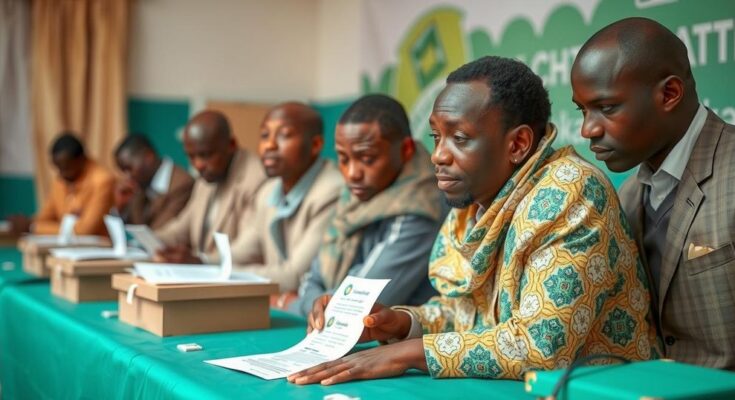Chad is conducting its first parliamentary election in over a decade amid a boycott by opposition parties, who allege that the election results are predetermined. President Deby encourages voter participation, while reports indicate low turnout in urban areas. Voter apathy is attributed to various factors, including skepticism towards the elections. The outcome of this election will significantly influence Chad’s political landscape.
Voting has commenced in Chad amidst a contentious political landscape, marking the first parliamentary election in 13 years. The government has framed this election as a pivotal step towards the restoration of democratic governance, allowing citizens to select a new parliament, provincial assemblies, and local councils. However, the opposition has rallied for a boycott, alleging pre-determined election outcomes and expressing skepticism about the integrity of the electoral process.
Chad’s recent parliamentary elections are a significant event in the country’s political trajectory following over a decade without parliamentary representation. The elections unfold as Chad faces economic struggles and social unrest, compounded by the effects of climate change and conflicts exacerbating local hardships. President Mahamat Idriss Deby Itno, who ascended to power through military means in 2021, seeks to legitimize his leadership through this electoral process. The low voter turnout, especially in urban centers like N’Djamena, raises questions about public engagement and the elections’ legitimacy amid opposition boycotts.
In conclusion, Chad’s parliamentary election, which aims to symbolize a shift towards democratic governance, is overshadowed by widespread opposition dissent and claims of electoral manipulation. The ruling party’s assertion of a significant voter turnout contrasts sharply with the perception of voter apathy, particularly in urban areas. As Chad navigates this transformative period, the electoral outcome will play a crucial role in shaping its political future amidst ongoing economic challenges and regional security issues.
Original Source: www.aljazeera.com




